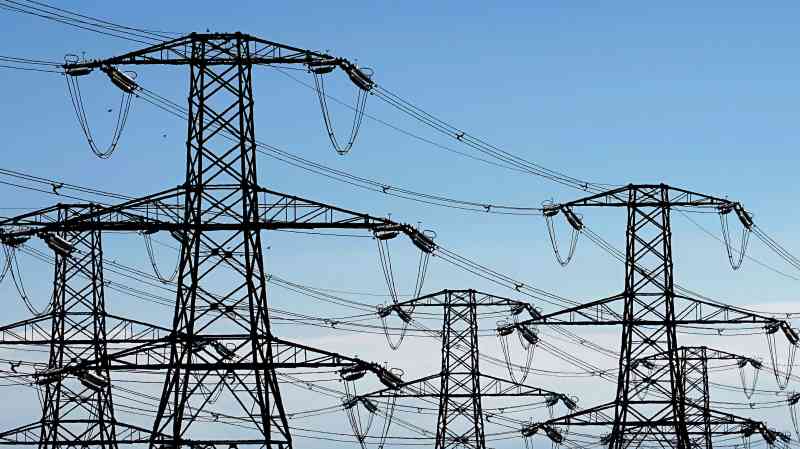Ofgem proposes law change to protect millions from force-fitted meters
Millions of the most vulnerable people in Britain will be protected from energy firms trying to break into their homes under proposals for legal changes before winter.
Ofgem, the energy regulator, has announced a statutory consultation on its plans to rewrite suppliers’ licence conditions in a crackdown on forced installations of prepayment meters.
The consultation — which includes the possibility of a full ban being extended to cover all homes with children under five — is the result of an undercover Times investigation, which found that British Gas was sending agents to install the meters forcibly in vulnerable customers’ homes.
Families forced on to prepayment meters, who cannot afford to top up, are cut off from their supply. Those targeted last winter by British Gas included the elderly, customers with known severe mental health problems and the mother of a four-week-old baby.
Ofgem’s initial proposals for change, announced in April, were for a voluntary code of practice for suppliers, offering some extra protections and a ban on suppliers force-fitting the meters in the homes of people over 85 who lived alone.
However, after concerns reported in The Times from charities and campaigners that this did not go far enough, Ofgem sought the advice of three NHS clinicians. Its consultation paper states that the doctors “argued that children under five should be included” in the full ban because of the “significant detriment young children can experience from living in a cold and damp home”.
They cited particular concerns that under-fives living in these conditions had increased risk of breathing problems, such as asthma and bronchitis, and that it was also linked to low weight gain in babies, slower growth, slower development and higher levels of hospital admissions.
Ofgem also had feedback that the ban should include anyone over 75 — ten years younger than those covered in their initially proposed changes — and that those in a slightly lower risk category, which would require further assessments of vulnerability, should include homes with children under 16 and those living a significant distance from a top-up retailer with no personal transport.
Ofgem’s consultation is asking for charities, campaigners and members of the public to share their views about the proposed changes, including on whether to extend the ban to cover homes with young children under five.
The deadline for responses is July 26 and the plan is for the final legal changes to be in place before winter.
The Times’s report led to investigations by Ofgem, the government and two parliamentary committees, and the force-fitting of prepayment meters has been suspended.
Lord Justice Edis, one of the country’s most senior judges, ordered courts to stop listing hearings for energy warrants and the order has not been lifted. Without these warrants, the firms cannot force-fit meters.
Firms have also been told they must identify cases where they have wrongfully installed the meters and offer those customers compensation.
Prepayment meter installations should always be a last resort, used only when all other options to recover debt have been exhausted — and only when it is safe and practical to do so.
Suppliers have to make at least ten attempts to contact a customer and complete a “site welfare visit” before force-fitting a meter.• Ofgem boss urged to quit by Gordon Brown over force-fitting of meters
The forced installations should never happen when customers use powered medical equipment, refrigerated medicines or have certain conditions that require warmth, such as emphysema.
Under the latest plans, those who have meters fitted would be given a £30 emergency credit per meter, although this amount would then be added to their debt.
The rules also require representatives of the firms to wear body cameras or audio recorders, with customers’ permission, so home visits can be audited.
Last year, energy suppliers force-fitted prepayment meters in customers’ homes more than 94,000 times.
Neil Kenward, director for strategy at Ofgem, said: “We are committed to ensuring robust protections are in place for vulnerable customers.”
Ofgem has also announced measures to help energy suppliers recover emergency support given to desperate prepayment customers. It is proposing setting an allowance at about £13 a year for a typical customer to be added to the price cap so suppliers can claw this back.
Ofgem said it did not expect this to lead to prepayment customers paying more on their bills than comparable direct debit customers because of the government pledging to ensure prepayment customers do not pay more.
Citizens Advice, the consumer charity, worked with Ofgem on the proposed changes. It said it was concerned about under-fives facing hardship because of forced installations and was continuing to push Ofgem for under-fives to be added to the “do not install” category.
Gillian Cooper, head of energy policy at the charity, said: “The prepayment meter scandal must never be repeated. As energy bills rocketed, far too many people were forced onto a meter they couldn’t afford to keep topped up — often despite clear evidence they could suffer harm if their credit ran out.
“Unless these protections are in place by winter, history could repeat itself — people who should never be on prepay coming home to a picked lock and a meter they just can’t afford to keep in credit.”
Simon Francis, co-ordinator of the End Fuel Poverty Coalition, said his organisation would be responding to the consultation “in the strongest possible terms to urge Ofgem to go further”.
He said: “The health risks associated with being disconnected from your energy supply don’t just stop at the over-85s, or the over-75s and under-fives for that matter. Living in cold damp homes because your prepayment meter doesn’t have credit are a danger to broad groups of vulnerable households.”
Baroness Altmann, the former Tory pensions minister, also called for under-fives and over-75s to be included in the ban, saying they “are much more vulnerable to cold and damp conditions and energy companies should not be able to put them at risk of harm in this way”.
She added: “Limiting to over-85s is not going to protect many of the elderly people that I know, who are in poor health in their seventies and at risk from cold. They can be cut off not just from their power, but from the outside world.”
To respond to Ofgem’s consultation, email [email protected]






